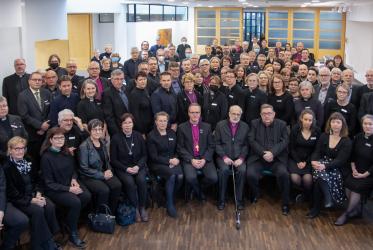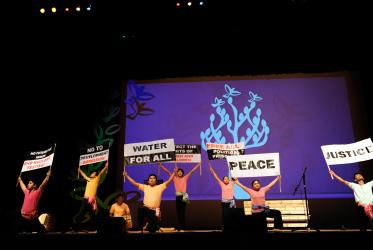Displaying 1 - 20 of 40
COVID-19 in conflict zones: “a crisis within another crisis”
27 November 2020
Hanbeet Rhee: “Young people can be bridges”
17 October 2019
Dr Saïd Ailabouni: God is on the side of rejected, oppressed, occupied
12 September 2019
Thursdays in Black: sharing support, transforming lives
21 February 2019
Ecumenical School on Governance, Economics and Management (GEM) for an Economy of Life
19 - 30 August 2019
Jakarta, Indonesia














